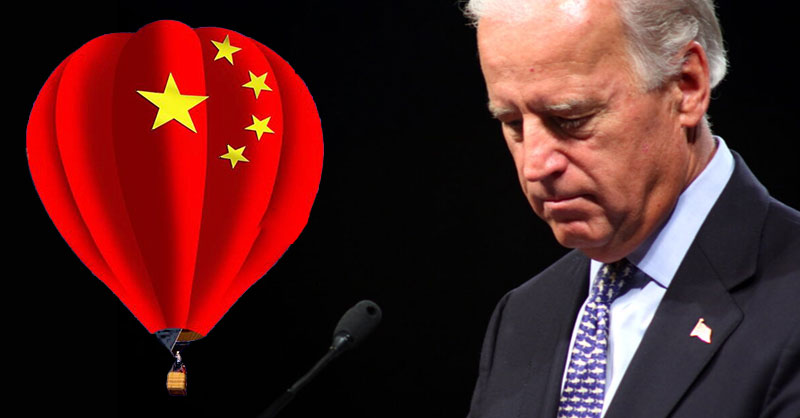Because of its weakness in the face of Communist China’s aggression, especially espionage, the Biden administration’s foreign policy is vulnerable.

Composite Joe Biden-spy balloon image. The Chinese spy balloon and other flying objects shot down in U.S. airspace in recent weeks have left half of Americans distrusting the administration. (Source: Newsweek)
China Military Spies
The 2024 presidential campaign will likely enhance Chinese espionage and covert influence as the U.S. government becomes less willing to take dramatic action before an election. China recruits US military spies. Two Navy sailors were jailed in August for leaking military secrets to China. One of the soldiers was still a Chinese citizen when he joined the Navy, making him an ideal target for Chinese intelligence officers, who wrongly think that all Chinese ethnicities owe loyalty to the CCP. China puts spies into our military bases. They impersonate lost travelers to test security and learn how to bypass defenses in a crisis. Human espionage follows allegations that Chinese hackers had accessed U.S. key infrastructure networks, allowing China to cut electricity, water, and communications to American military facilities in a crisis. A few days before, press reports revealed a web of covert Chinese political influence through left-wing activist groups like Code Pink.
China models its U.S. influence programs after its success in other English-speaking nations. The Canadian government is investigating accusations that China’s Ministry of State Security secretly orchestrated campaigns against tough-on-China MPs. Before the 2021 Canadian elections, China gave Justin Trudeau’s Liberal Party money and votes. China has tried for years to influence dozens of Australian and New Zealand politicians and media outlets with its economic power. The Biden administration’s response? Despite the espionage threat, Biden’s Justice Department shut down the Trump administration’s China Initiative last year under pressure from activists who called it racist and xenophobic. In the meantime, the Biden administration’s efforts to prohibit Chinese-owned social media platform TikTok have stalled. Over two years, the administration has negotiated with TikTok through the Committee on Foreign Investment in the US interagency procedure without a deal to reduce the app’s power to influence American politics and blackmail espionage targets.
Although Congress could still act, TikTok is relieved as the House and Senate confront a busy legislative agenda without a ban. Beyond TikTok, the White House dallied for months on regulating U.S. investment in advanced technology research in China. In August, an executive order began a new deliberative process while the Treasury Department creates regulations for a few industries, leaving most of China’s sophisticated research unaffected. The result? Act no earlier than 2025. Meanwhile, high-ranking U.S. officials have visited Beijing to influence China’s behavior. Visits by U.S. climate envoy John Kerry, Treasury Secretary Janet Yellen, Secretary of State Anthony Blinken, and Commerce Secretary Gina Raimondo (whose emails the Chinese hacked earlier this year) delayed U.S. responses to China’s aggression while yielding little. The Biden administration has lost leadership in the fight against the Chinese Communist Party due to foolish judgments and inaction. America deserves better.
READ ALSO: China Might Use TikTok Data Against US

















































